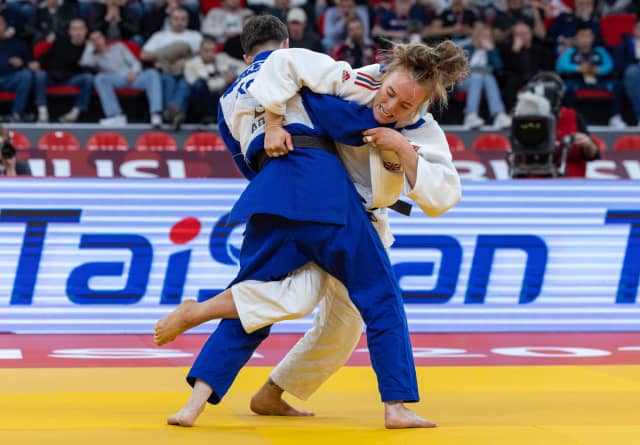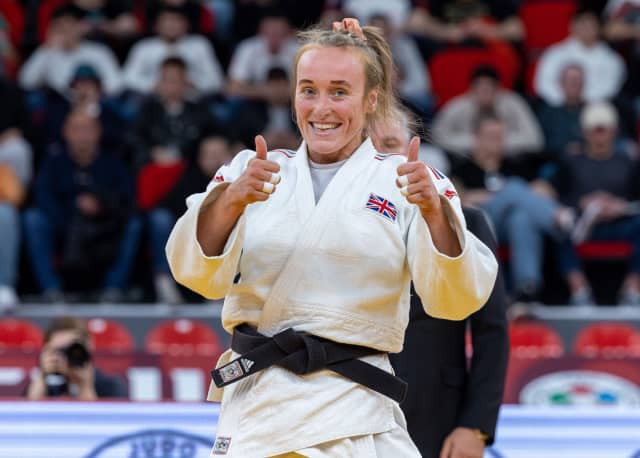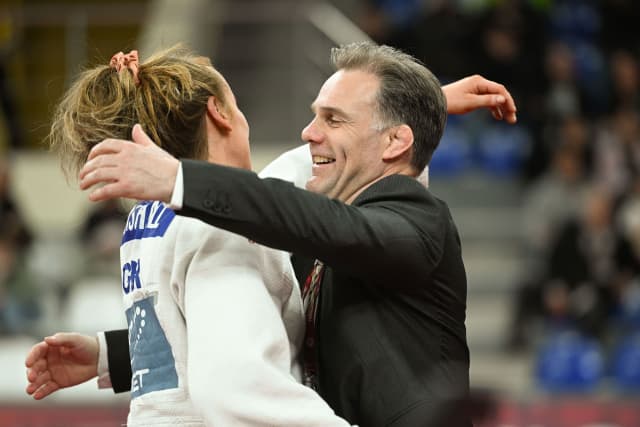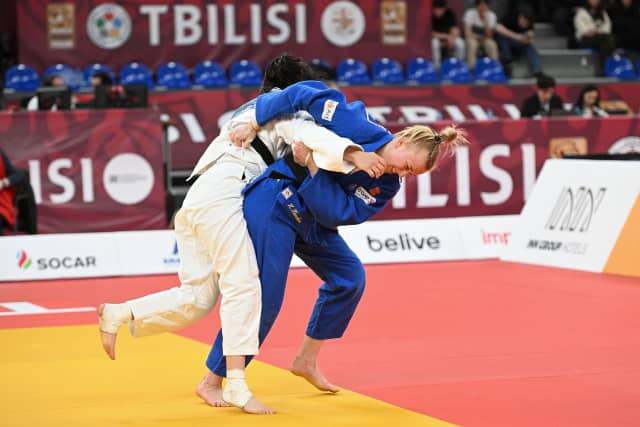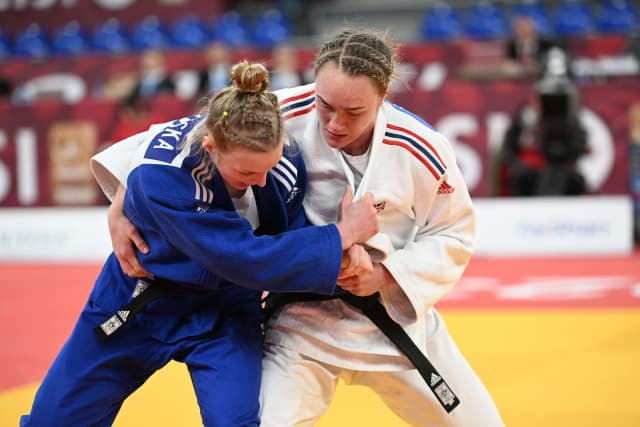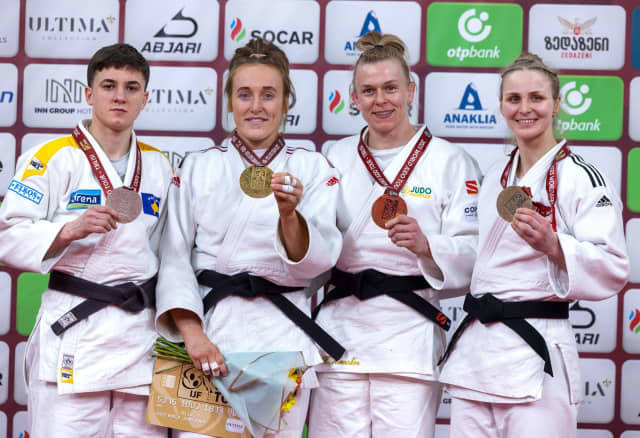In the -63kg category it was Lucy Renshall (GBR) who occupied this position that was envied, coveted and feared and we cannot say that it caused her many problems at least until the final, where she found Laura Fazliu (KOS ) who thus had the chance to win this gold medal, one which escaped her teammates on day one of the tournament.
Renshall being second in the world ranking and Fazliu, 11th, Renshall seemed to have a little advantage but the match was pretty balanced. They both had a go, both trying to score and look for opportunities on the floor. It was only in the last seconds that a shido was given to each of the judoka. In golden score, Fazliu was awarded a second penalty, putting her under pressure. Once again, those penalties didn't really show the openness of this final that was really interesting to follow. A slight difference in the intention to throw offered Renshall the victory when Fazliu was penalised a third time. To make a great final, you need two judoka who are willing to win. Today there was no score, but as a matter of fact, it was a good match. It was gold for Renshall, rewarding her consistency, and a third silver for Kosovo.
Renshall: consistency is key🔑🇬🇧#Judo #JudoTbilisi #Georgia #WJT #RoadToParis2024 #OlympicQualifier pic.twitter.com/Zx19eqZASs
— Judo (@Judo) March 25, 2023
Beautiful footwork! Laura Fazliu 🇽🇰#Judo #JudoTbilisi #Georgia #WJT #RoadToParis2024 #OlympicQualifier pic.twitter.com/Qq4wIH31Bm
— Judo (@Judo) March 25, 2023
It should be noted that along the way, the world number four, Gili Sharir (ISR), winner in Paris this year, was disqualified from the start, after applying tension to her opponent's arm while trying to throw her, which is completely prohibited. We should also note the almost faultless performance of Katharina Haecker (AUS) who reached the semi-final, but lost out to Fazliu.
Katharina Haecker (AUS) faced Inbal Shemesh (ISR) in the first match for a bronze medal. Both competitors were quickly penalised for passivity, even if Haecker showed more power, which pushed Shemesh to receive a second shido later on. With less than a minute to go, Haekcer transformed that dominance into a first waza-ari with a te-waza technique. A few seconds later, she concluded with an ippon-seoi-nage combined with a change of direction and a power drive to push Shemesh backwards on to her back for ippon. The Israeli judoka tried to counter-attack but it was too late and Haecker added a second grand slam bronze medal to her prize list.
Great Britain had a second medal chance with Gemma Howell (GBR), qualified for the second bronze medal contest, against Angelika Szymanska (POL). Howell was penalised with a first shido for breaking the kumi-kata. The opposition of stance, Howell being right-handed and Szymanska, left-handed, visibly bothered both competitors but Howell more than her opponent and the British athlete was penalised a second time. Then it was time for golden score. At almost thirty seconds into the extra-time, Angelika Szymanska drove Gemma Howell to the floor with a powerful te-waza for waza-ari and so the bronze medal was hers and Poland’s.
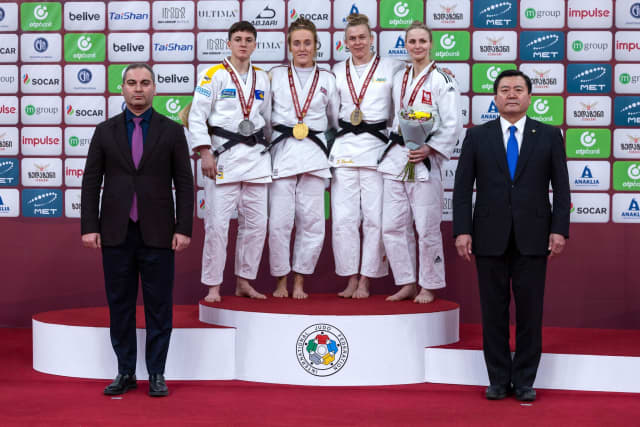
Final (-63 kg)
Bronze Medal Fights (-63 kg)
Final Results (-63 kg)
More images of the Tbilisi Grand Slam 2023 - CLICK HERE

